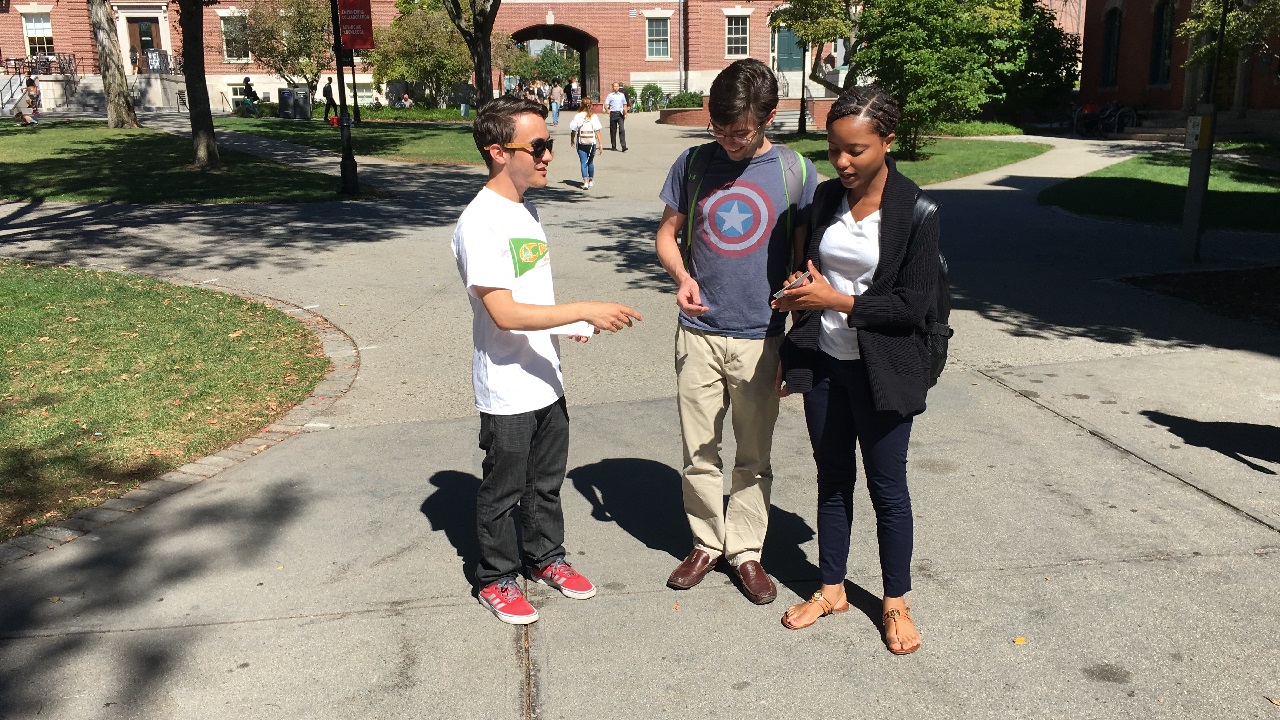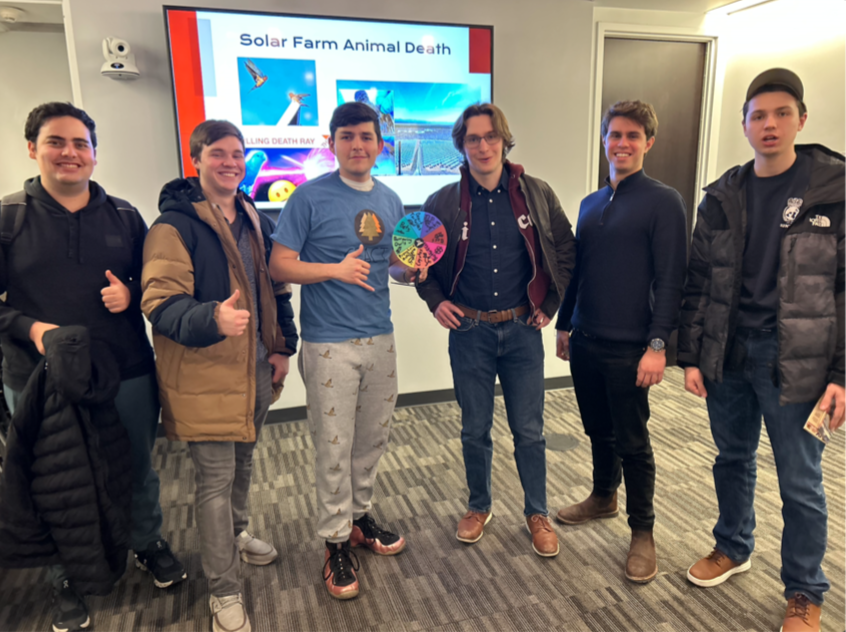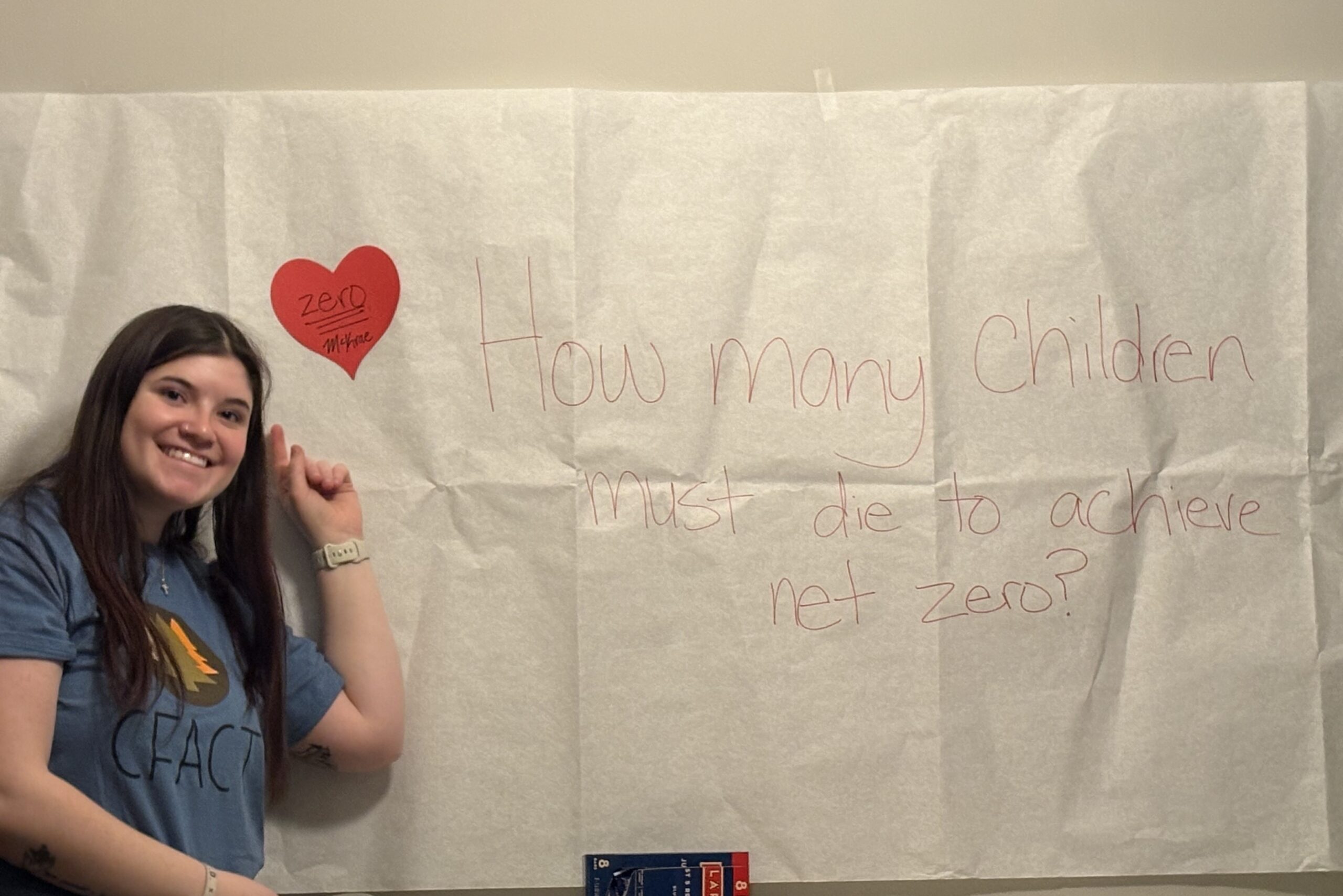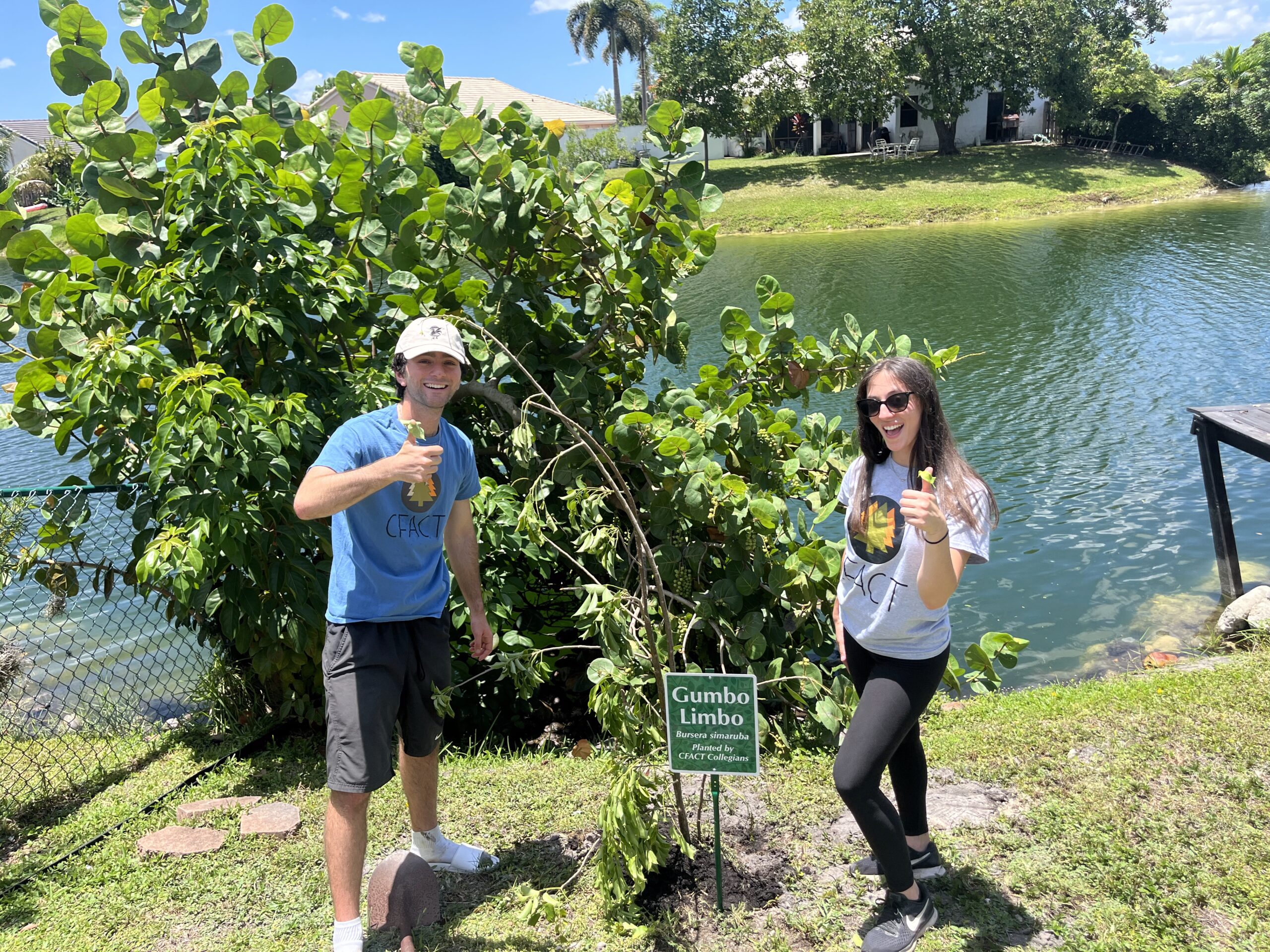As many as 100 million birds are estimated to die each year from flying into windows in the United States. Collegians at Brown University in Providence, Rhode Island 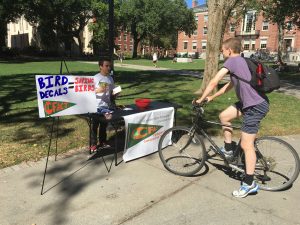 wanted to help solve this problem on their campus by distributing bird decals to place on windows and put environmental stewardship into action.
wanted to help solve this problem on their campus by distributing bird decals to place on windows and put environmental stewardship into action.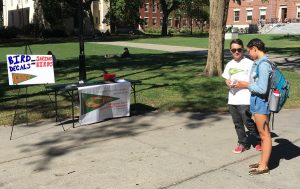
Bird decals are one way to prevent unnecessary bird deaths without creating governmental regulations on where or how buildings can be constructed. When light shines on the decal, it shines like a flashlight to birds to warn them not to fly through what otherwise would look like free flying space. The light is invisible to humans because birds have more sensitive UV receptors than humans.
“People don’t usually associate capitalism with solving environmental problems, but entrepreneurship innovates to create solutions like these,” said Cameron Westbrook, who helped distribute the decals on campus. “It opens people’s minds to make them 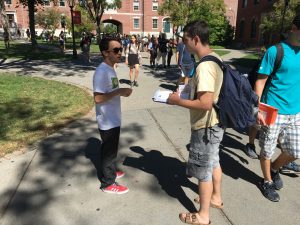 realize that free markets can help with conservation too.”
realize that free markets can help with conservation too.”
The event also drew a sharp contrast to the radical environmentalists who seem to have swept bird conservation under the rug by turning a blind eye to the slaughter of birds by wind turbines. According to independent wildlife expert Jim Wiegand, wind turbines are killing up to 39 million birds a year. CFACT at Brown University thought putting bird conservation into action would put pressure on so called “green” groups to stop sacrificing birds to advance their energy agenda.
The free market, through consumer choice, can discover how to surmount environmental challenges with ideas that the government would have never even dreamed of. Bird decals are an example of private businesses recognizing a problem and a demand for a solution to that problem, and creating that solution. It doesn’t demand anyone to stop their livelihoods or put restrictions on where they can build their property.
